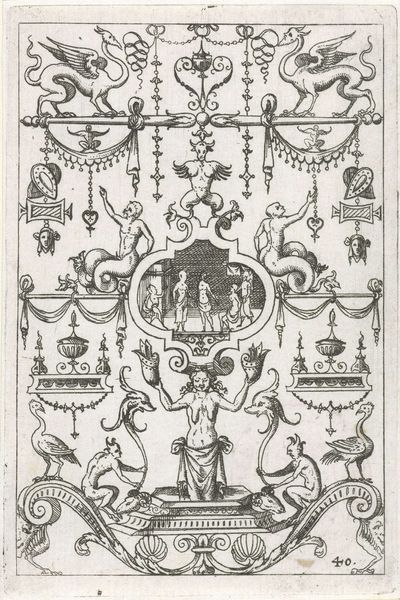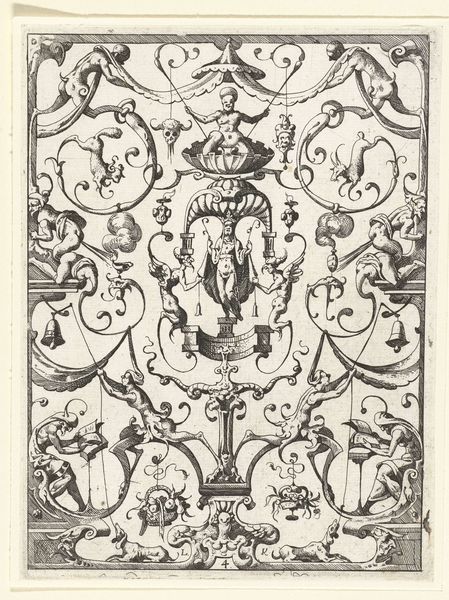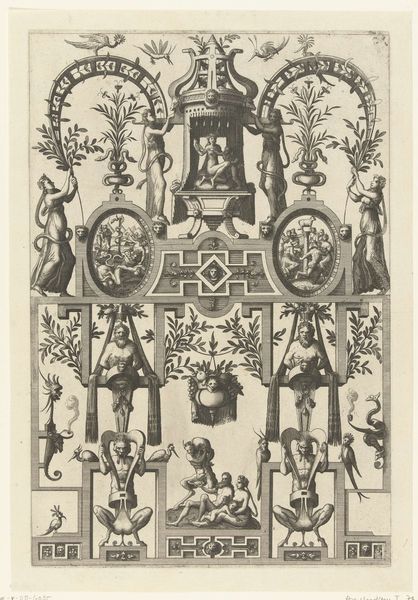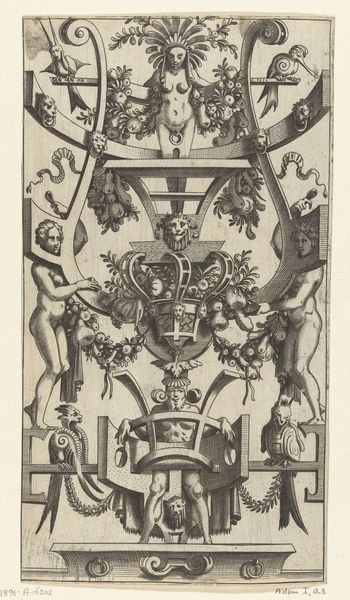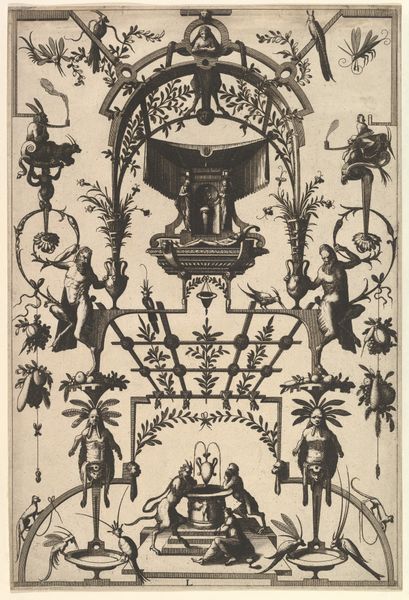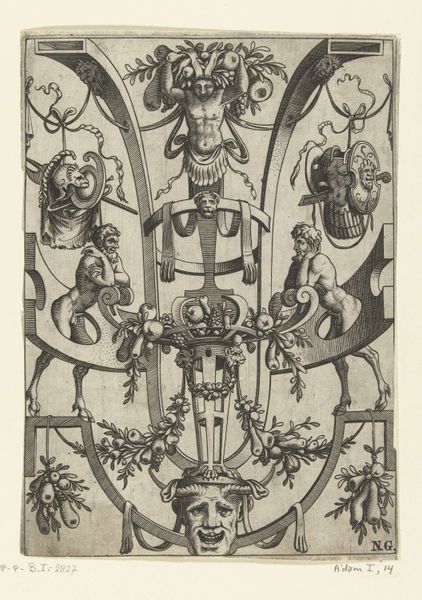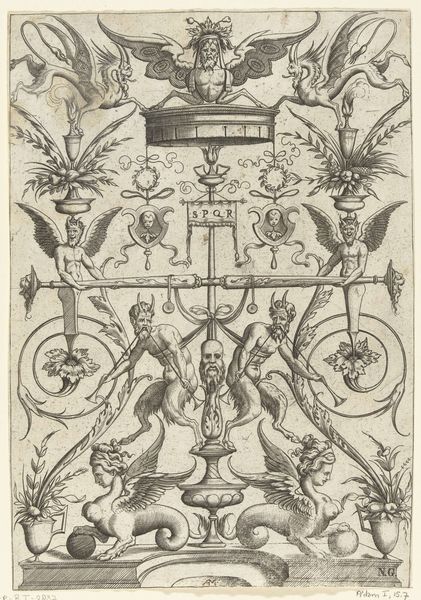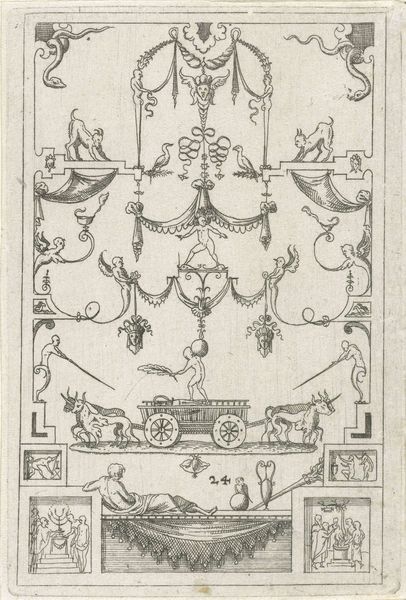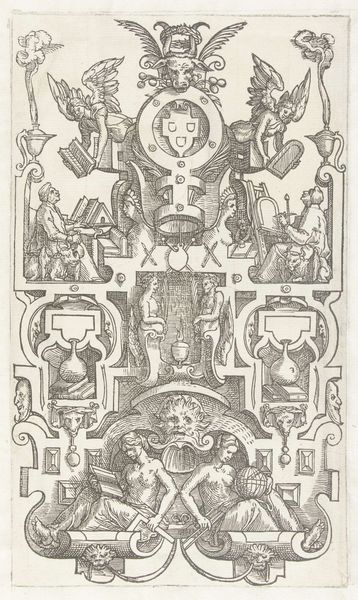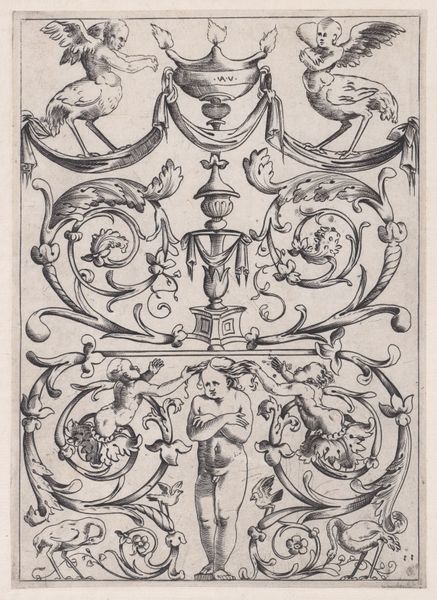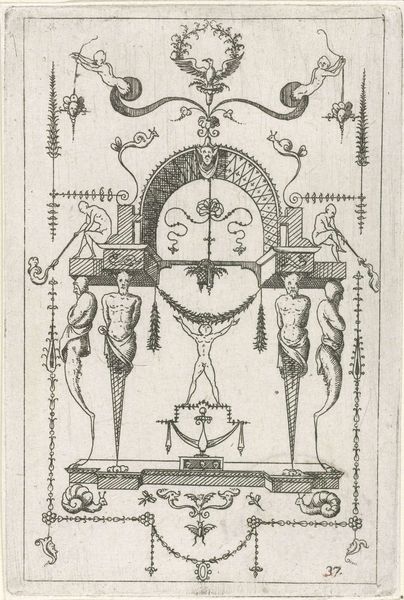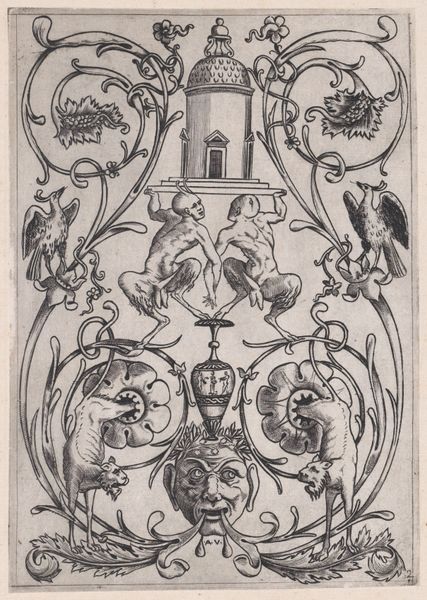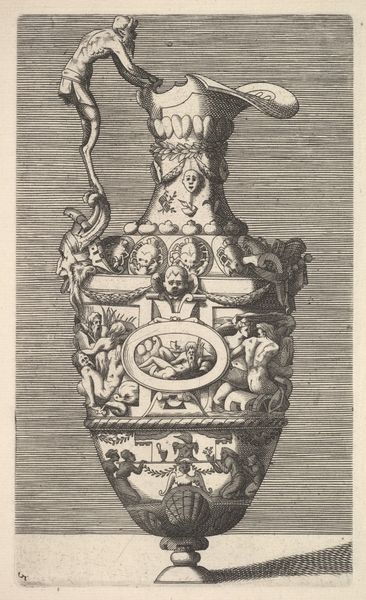
print, engraving
#
allegory
#
pen drawing
# print
#
pen illustration
#
pen sketch
#
figuration
#
11_renaissance
#
pen-ink sketch
#
pen work
#
sketchbook drawing
#
northern-renaissance
#
engraving
Dimensions: height 228 mm, width 162 mm
Copyright: Rijks Museum: Open Domain
Curator: Here at the Rijksmuseum, we have an engraving entitled "Drie kandelabers," or "Three Candelabra" in English, dating from sometime between 1516 and 1556. Though currently attributed to Anonymous, its visual language tells a rich story. What's your initial response to this Northern Renaissance print? Editor: A story is right. My first impression is that this feels rather unsettling. The symmetry and the ornamentation are meticulously rendered, but the inclusion of infants and what appear to be strange hybrid creatures makes it oddly nightmarish. Curator: Absolutely. The recurring motifs here point to a complex network of symbols relating to themes prevalent in the Northern Renaissance. Notice how the cherubic figure laboring within a rudimentary architectural frame almost mocks classical ideals of the heroic nude figure? Consider its impact when juxtaposed with winged sirens. The piece could very well be questioning established social and political structures of the period, specifically regarding the role and representation of innocence and strength. Editor: And how does the candelabra imagery tie into this critique? For light is knowledge, isn't it? Do these fantastic light fixtures spread enlightenment or obfuscate a deeper truth? There’s the cornucopia overflowing above…but then, consider those smaller mummified babies towards the bottom; it feels like there's an allegory for birth, death, abundance and scarcity fighting for dominance here. Curator: Precisely! The piece invites us to reflect on binaries: abundance versus scarcity, beauty versus the grotesque, the sacred versus the profane. Perhaps it reveals an artist wrestling with social inequality and the hypocrisy of power. The candelabras themselves are vehicles, transmitting coded visual cues meant to be decoded by the initiated viewer. Editor: It is intriguing how an ostensibly decorative piece can contain so much critical, even subversive, commentary. I can’t help but wonder about the identities and intentions of those who first encountered it. Curator: Indeed, "Drie kandelabers" isn’t just a feast for the eyes; it’s a challenge to our assumptions. Editor: Yes, a beautiful and rather dark mirror reflecting the tumultuous transformations of its time.
Comments
No comments
Be the first to comment and join the conversation on the ultimate creative platform.
